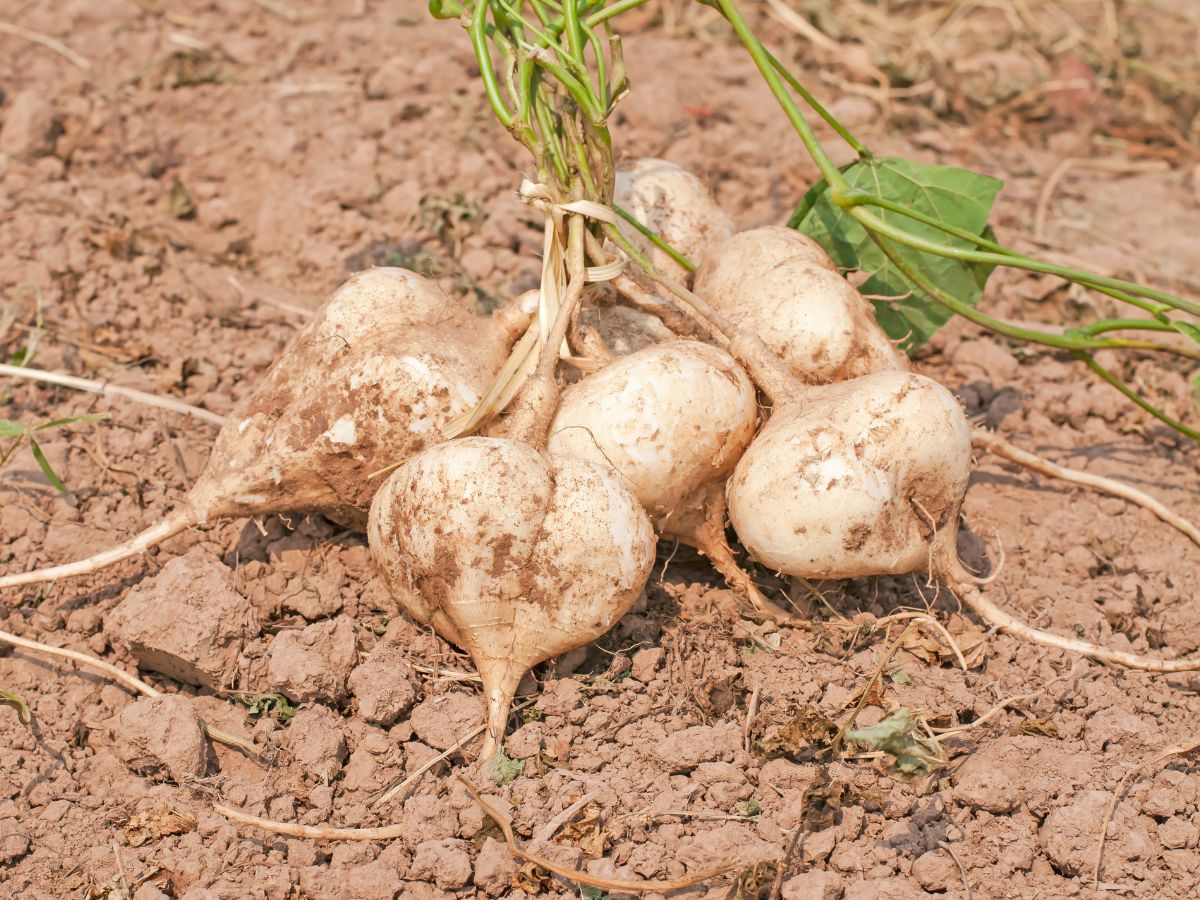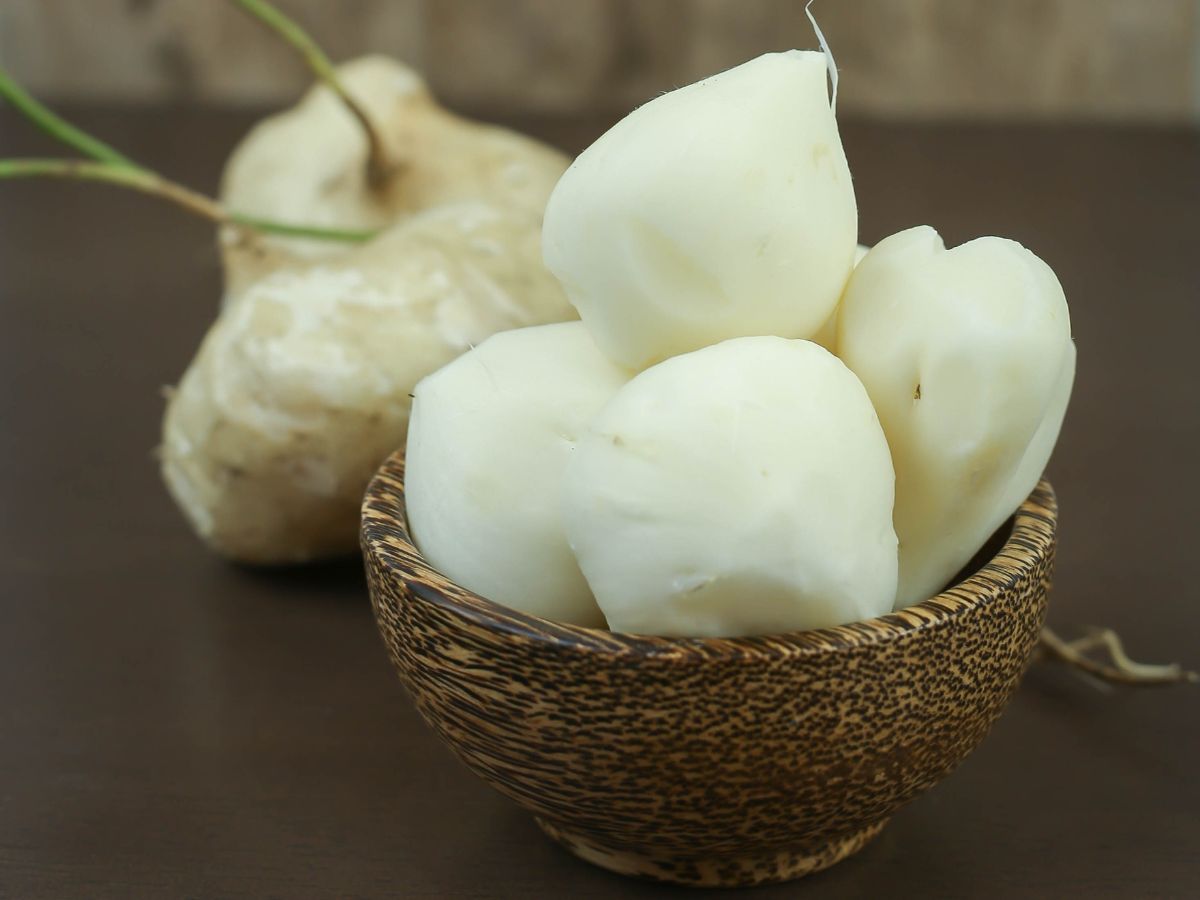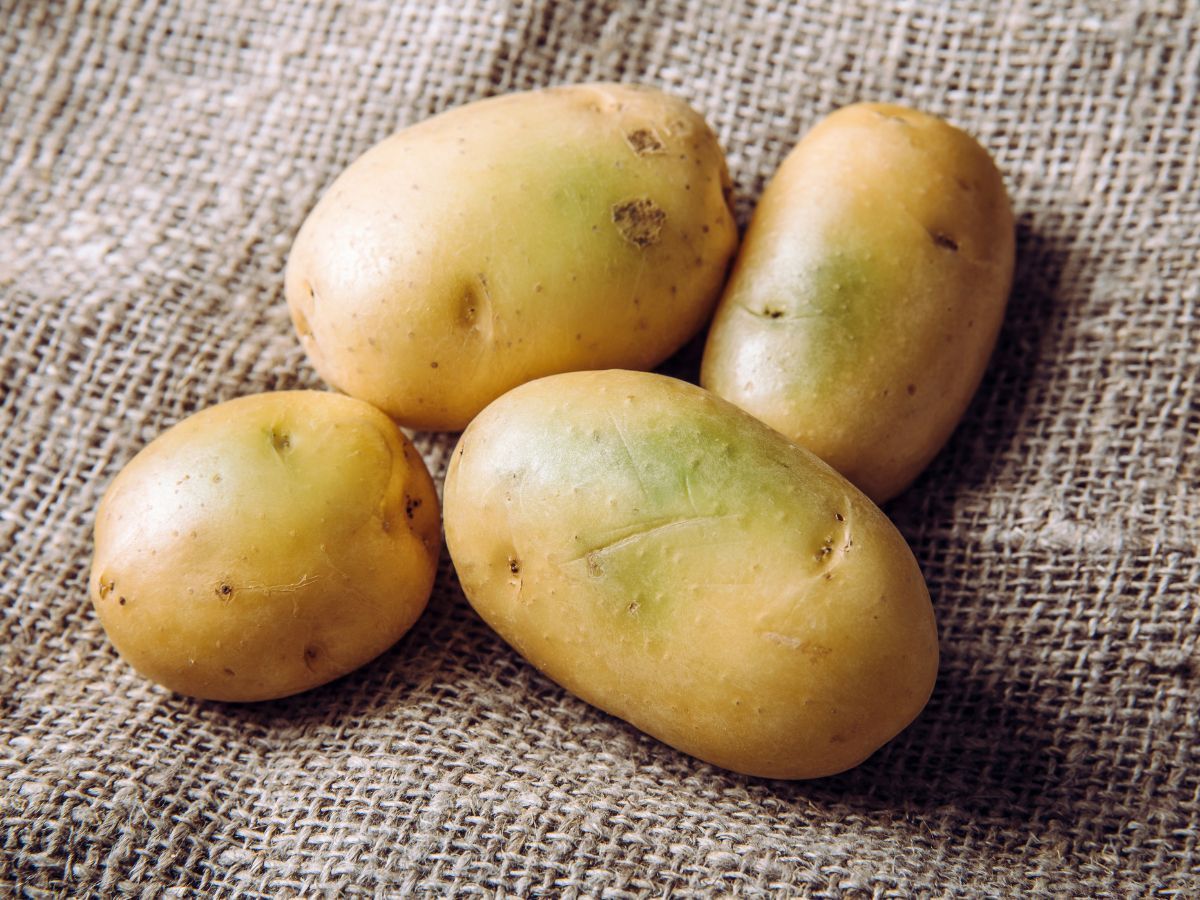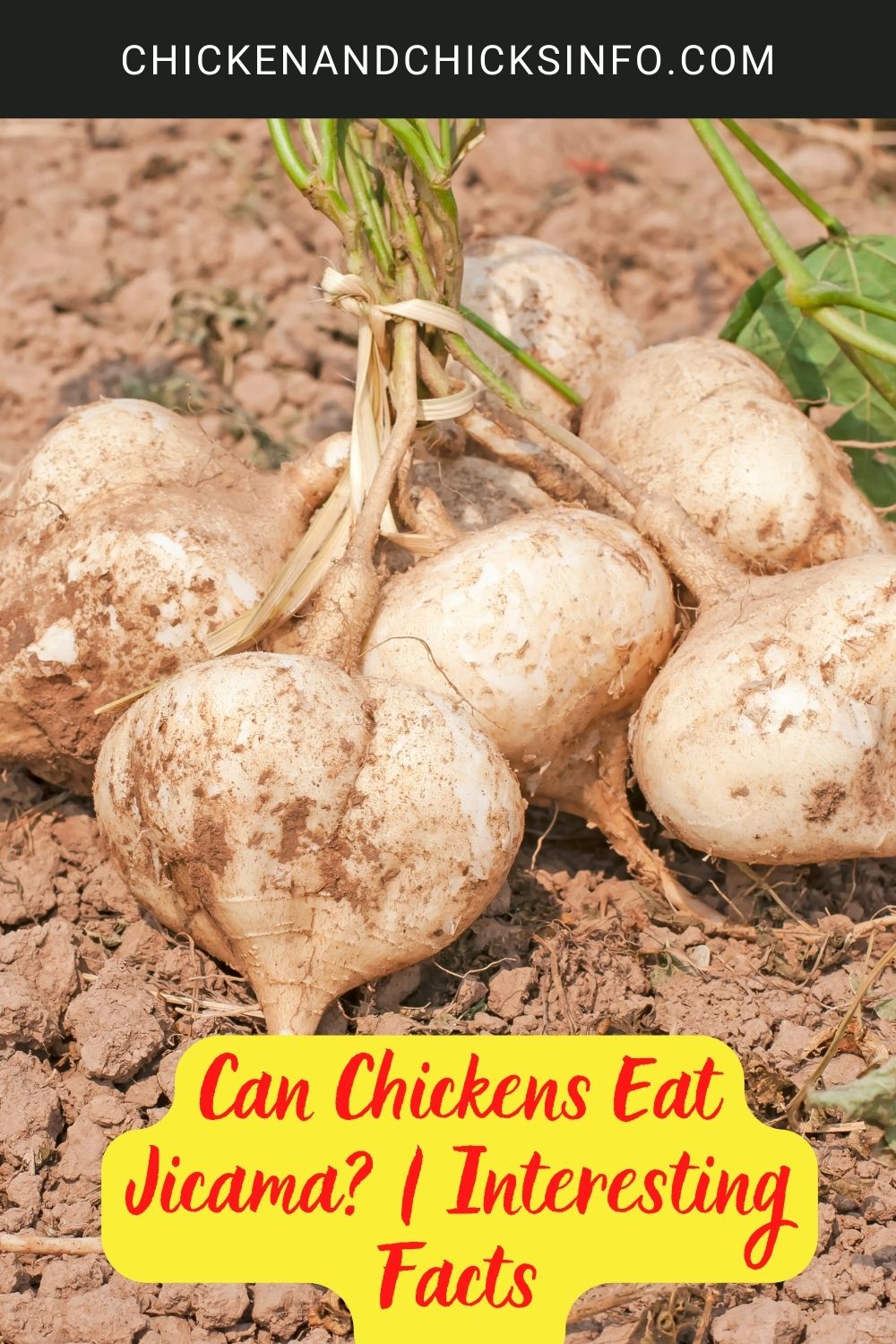
Jicama is not the most common vegetable, but it’s fairly easy to grow, packed with good nutrition, and often seen as an ingredient in some pet foods.
So, can chickens eat jicama?
Is it safe for them and will they benefit from this nutritionally dense vegetable?
There is a lot more to this vegetable that most people are aware of. Parts of the plant are very toxic, but the root is tasty and offers some good health benefits.
Here’s everything you need to know about jicama if you keep backyard chickens and are debating what to share with them or not.
Jump to:
What Is Jicama?
Jicama is a starchy vegetable that looks and tastes similar to a potato, although it’s a little sweeter. It’s native to Mexico, and often referred to as a Mexican turnip or a yam bean.
The root of the plant is the part that’s eaten. In fact, the rest of the plant is actually very toxic. The seeds contain a toxin called rotenone which is used to poison fish and insects.
The part that’s fine to eat is actually packed with some good nutrition. It’s rich in antioxidants, vitamins, minerals, and other good stuff. Jicama is dense in nutrients while being low in calories.
Jicama is added to some pet foods, most notably dog food, as it provides a good source of fiber and inulin. Inulin is a prebiotic that’s added to a lot of our foods too as it aids digestion.
Is It Ok for Chickens to Eat Jicama?

Jicama is not toxic or poisonous to chickens - as long as you’re giving them the root of the plant without its skin!
I mentioned above that the rest of the plant, and the leaves and seeds, in particular, are toxic to us and pets and should be avoided at all costs.
This should only be a concern if you’re growing jicama yourself in your yard. If you are, you absolutely have to make sure your chickens (or any other pets) do not come into contact with the plant.
If you’re buying from a store, it should come as just the root or chopped up in a bag. If you’re buying raw from a veggie stand, now you’re aware of the dangers and will peel and clean it before eating.
How to Feed Jicama to Chickens
As long as you’re strictly only feeding your chickens the fleshy part of the root, you can either feed it to them raw or cooked.
The important thing to remember is not to give them any that’s had salt, pepper, seasoning, etc added to it.
Some of the Foods That You Should Never Give Chickens

While we’re on the topic of foods that are potentially harmful to chickens, here are some other foods that you may not have known are toxic to chicks:
Nightshade vegetables - This is a delicate area. Much like jicama, potatoes, tomatoes, and some peppers are fine for chickens if you feed them the correct parts of the plants. (Read this for information on how to feed your chickens potato peels.)
However, if a part of a potato has gone green due to exposure to sunlight, it’s toxic. As are green tomatoes and the leaves and stalks of a tomato plant.
My advice is to familiarise yourself with vegetables that are part of the nightshade family and don’t give them to your chickens unless you’re 100% sure it’s safe.
Raw beans - Raw beans contain a harmful toxin that dissolves when they’re boiled for a certain amount of time.
Coffee grounds - I often mention coffee grounds as I know a lot of people use it to fertilize their gardens. Two compounds; theobromine and caffeine are toxic to chickens though so be careful where you put them.
Chocolate - For the same reasons, chocolate is toxic to chickens as it contains the same two compounds as coffee. It must be why I love both of these substances so much!
Avocado pits and skin - Another vegetable that tastes so good, yet is potentially so harmful. The skin and large seed contain a toxin called persin that is harmful to most pets and animals.
This isn’t a complete list of foods that you shouldn’t give your chickens, but it covers some of the more common foods.
Before giving your flock any foods for the first time, it’s always a good idea to check that it’s safe to do so first.
In Summary - Can Chickens Eat Jicama?
Chickens can eat jicama, yes.
It’s an interesting vegetable. Most of the plant contains a toxin that is harmful to us as well as chickens.
Obviously, when you’re buying jicama you’re only getting the root which is fine to eat. I’m not trying to scare you away from eating it yourself, but I think it’s important to be aware of the potential risks.
Please do keep in mind too that when feeding your chickens vegetables, fruits, and other scraps of food you don’t want that it should only make up a small part of their diet.
Chickens require a good amount of protein, calcium if they’re laying eggs, and other vitamins and minerals to maintain optimal health.
All of which come from a quality feed and grit.
The general rule of thumb is that you have about 10% of their diet as room to throw in other foods to give them some variation. The other 90% should strictly come from their feed.





